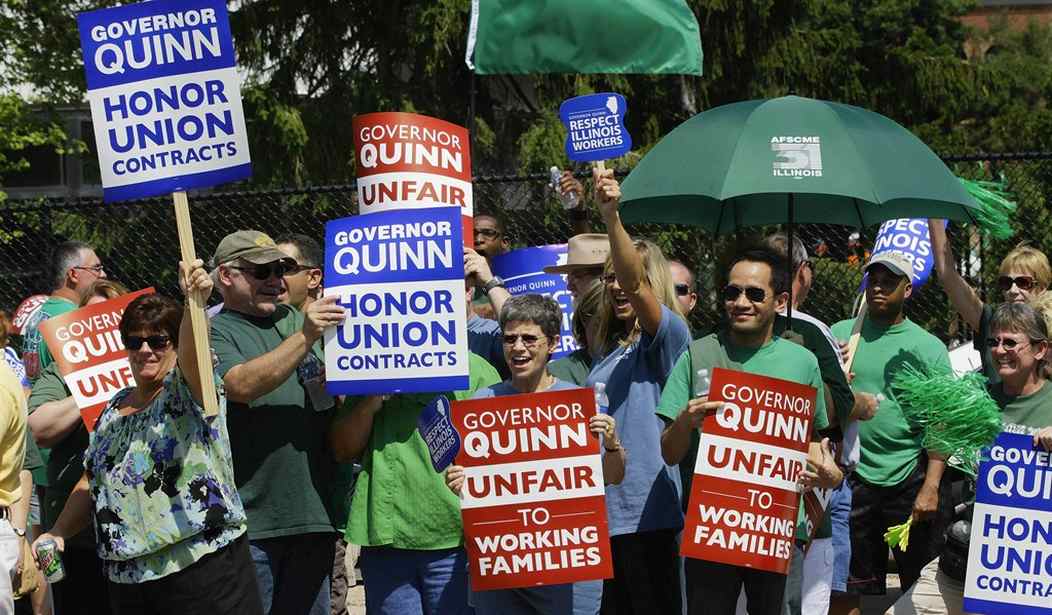The median American household saw its net worth decline by 36 percent during the Great Recession. That is a hard reality. A Republican held the White House when the crash hit, and voters, in no mood to be charitable, blamed the GOP. Besides, Democrats were ready with an explanation that slid right into an existing groove of American thinking: The financial crisis was caused by Republicans going easy on their big banker friends.
By 2012, the recession had been over for three-plus years, and yet the average American saw little improvement. Average net worth continued to drift downward. Long-term unemployment had reached record levels, and labor force participation declined. More Americans had joined the disability rolls than gotten work. Poverty was higher than at any time since the 1960s. Republicans expected the election to be a referendum on President Obama's leadership. It wasn't. The president, with an assist from Mitt Romney's "47 percent" gaffe, was able to argue that as bad as things were, at least Democrats were on the side of the "middle class."
This year, Republicans are again banking that the election will be a referendum on Obama. Maybe it will. One in four working-age Americans is out of a job. Wages have stagnated. Debt is off the charts. Obamacare has increased the cost of health insurance. Immigration reform is no longer popular. Inequality, supposedly the holy grail of Democrats, has increased on Obama's watch. World disorder is intensifying, while threats are multiplying. Obama's approval ratings, at 41.3 percent, are low.
But the approval ratings for Congress are at 12.6 percent. Sure, Democrats control the Senate, so perhaps they must take some of the burden of that number, and voters despise partisanship, which they perceive (wrongly) as "bickering." Even taking all of that on board, does the Republican Party have reason to rest easy this cycle? Have they given the ordinary voter any reason to think his life will improve if he votes Republican?
Recommended
Byron York of the Washington Examiner reminds us that in 1998, the party had an intense internal debate about whether to run against the sinning Bill Clinton or on its accomplishments as majority party in Congress (welfare reform, balanced budget, economic growth). The party chose the Clinton strategy and achieved the near impossible: In the sixth year of a presidential term, they lost five seats.
In 1998, John Boehner was among those who preferred a substantive agenda. This year, he has offered little beyond platitudes.
Every Republican candidate should make it his constant goal to upend the image of the party as favoring the rich.
Sens. Mike Lee and Marco Rubio have proposed a tax reform that would offer real relief to parents. Parents in effect pay twice for Social Security and Medicare: once when taxes are withheld, and again when they bear the cost of raising the next generation of taxpayers. The senators' proposal would provide an additional $2,500 credit for each child applicable against income and payroll taxes. Their reform would also eliminate the marriage penalty and reduce the corporate tax rate, spurring economic growth.
Republicans owe it to the nation to be honest about entitlement spending. Unreformed, it will transform the U.S. from a vibrant world leader into a wobbly Europeanized geezer. But Republicans should also seize upon cronyism and corporatism. What are those "risk corridors" embedded in Obamacare but payoffs to large insurance companies?
Democrats sing hymns to government "services," but that usually means writing checks to big companies (often contributors). That's the case with Obamacare. Republicans should champion market reform of the health insurance system that will bring down prices and expand choice.
Why are taxpayers being asked to foot the $4.9 billion bill for a high-speed rail link between Las Vegas, Nev., and Victorville, Calif.? Someone should ask Sen. Harry "I believe high-speed rail is an important aspect of Nevada and the country's future" Reid.
The U.S. government sends nice round checks to cable providers ($7.2 billion as of 2012) for "rural broadband" service. As the CATO Institute notes, the majority of those served already have broadband.
"Occupy" pin-up Sen. Elizabeth Warren, among other leading Democrats, is in favor of reauthorizing the Export-Import Bank over Republican objections. Nicknamed "Boeing's Bank," Ex-Im is a textbook example of corporate welfare.
Republicans could highlight these issues. Or they can coast on their reputation.

























Join the conversation as a VIP Member